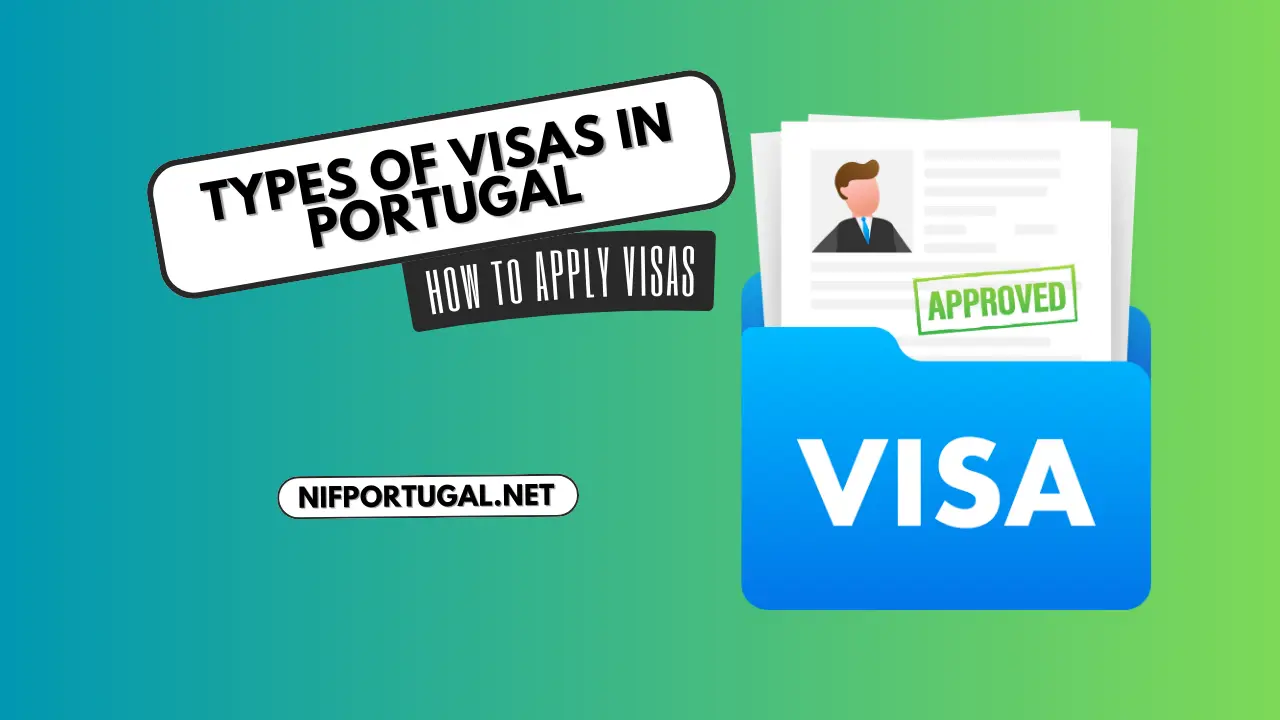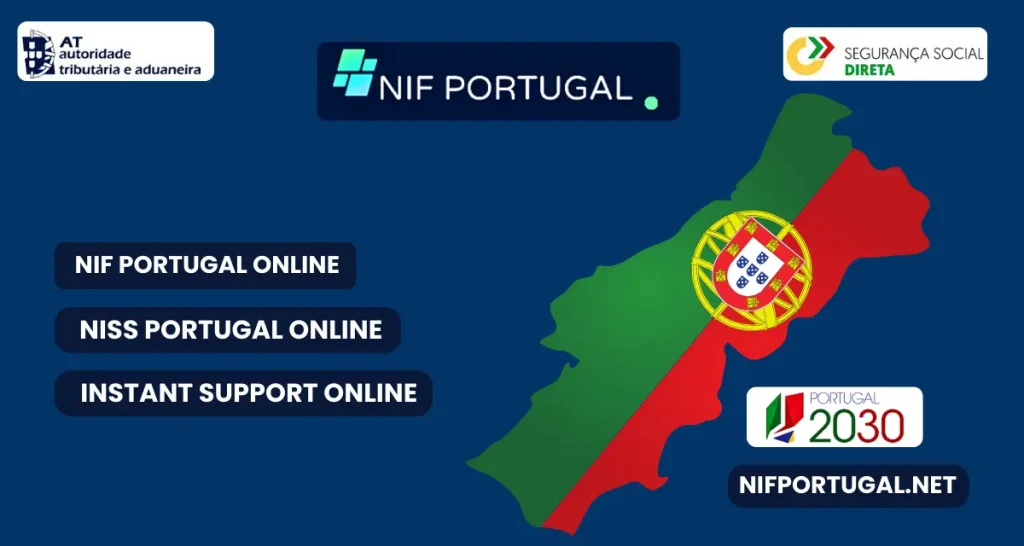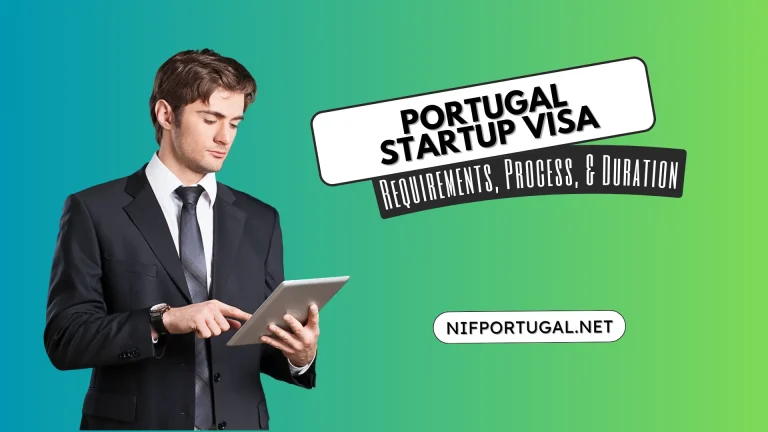Types of Visas in Portugal: Complete Guide for Visa & TRC in 2025
With its alluring countryside, pleasant temperature, and diverse cultural offerings, this jewel of southwest Europe has become a draw for people looking for a change of pace or a fresh start. Portugal is a desirable location for a wide variety of people, drawn by the attraction of the Golden Visa program, which opens doors to residency through strategic investments, and the Non-Habitual Resident (NHR) program, which offers advantageous tax incentives.
Portugal’s friendly climate and alluring visa programs make it an intriguing alternative for people eager to embrace a new chapter, whether looking for a peaceful retirement, pursuing business endeavours, or enjoying the benefits of a digital nomad lifestyle. So, let’s delve into the beauty of the different types of visas that Portugal offers and how you can get the best one for you!
Who Requires a Visa for Portugal?
Portugal has a two-tiered immigration and visa system. Because of this, the rules differ because you are an EFTA, EU, or third-country citizen. In light of this, let’s go over them in more detail.
1. EU/EFTA Nationals
For a maximum of three months, EU nationals are allowed access to establish a business or seek employment under the visa category for Portugal. After they start working, EU citizens have the same constitutional rights as Portuguese workers. EU and EFTA citizens are free to move to Portugal, but if they plan to stay longer for the period, they are allowed based on a condition. As far as the condition is concerned, you are required to apply for a registration certificate. EU nationals can apply for a permanent residency certificate after five years.

2. Non – EU/EFTA Nationals
Non-EU/EFTA nationals who want to stay in Portugal for less than three months must have a valid visa unless they have a bilateral arrangement with Portugal. These nations include the US, Australia, Canada, Japan, and the UK. But suppose non-EU/EFTA citizens want to reside in Portugal longer than three months. In that case, they must apply for a Portuguese residence permit and a long-term national visa before entering the country.
10 Types of Portugal Visas – Full Guide
1. Short-Stay Visas (Schengen visa)
Holders of this visa can enter and exit the Schengen area for short-term travel purposes, including tourism, seeing family, and airport transit. You must submit the following documents with your application form to obtain a 90-day visa.
It consists of:
2. Long Stay Visas
Residency visas, sometimes called Long Stay National visas, permit stays of more than a year. Even in countries with a visa-free travel agreement, non-EU/EFTA people must apply for this visa if they want to stay in Portugal for more than a year. Several long-term national visas are available, such as jobs, studies, professional training, job placement, etc. In addition, a residency visa is good for four months and permits two visits per year. The owner of a resident visa must apply for a residency permit with Immigration and Border Services (SEF), now called (Agência para a Integração Migrações e Asilo) AIMA, within that period.

3. Self-Employment Visa
If you are going to work with any Portugal-based and registered company, you can apply for this self-employment visa. Talking about its details, for proof, they demand an offer letter or contract for the approval of your visa application. You can live and work in Portugal with this kind of work visa. You can also travel within the Schengen area with this visa, a Portugal work visa.
When you get the self-employment visa, you must get your NIF (we have a dedicated post on this if you want to visit with all the details), and you are also required to pay your taxes. For the application process, you need the following:
4. Portugal Study Visa
Usually given for a year, it can be upgraded as you go through your educational years. For the application procedure for a Portugal Study visa, you need the following:
5. Retirement or D7 Visa
Primarily, it is considered a long-term visa, unlike the study visa and short-stay visa, given to people who financially support their family with a Portuguese welfare package or without work. But, for this visa, there are some strict policies and documentation that are as follows:
6. Family Reunion Visa (Article 98.1 Visas)
If your family or relatives are not from the EU, they must apply for a family reunion visa to visit Portugal as residents of the EU/EFTA. Whether you are a spouse, family member, or a registered partner, including any adopted children, dependent siblings, etc. For the application procedure and documentation requirement, you need the following:
7. Digital Nomad Visa (D8 Visa)
Recently introduced in Portugal, the Digital Nomad Visa resembles the retirement visa we discussed above. You don’t need any passive income or proof of supporting yourself. Furthermore, your monthly income must be at least four times the minimum salary in Portugal, which, as of September 2023, is €3040.
8. Portugal Golden Visa (Investment Visa)
This unique Portuguese visa program aims to draw the international capital to Portugal. The Portuguese golden visa scheme expedites the procedure for global investors from non-EU nations if they invest a minimum amount in Portugal. An additional advantage is that your Golden Visa allows you to travel freely between Schengen nations without requiring extra paperwork. After five years, you may be able to petition for citizenship after receiving your Portugal Golden Visa. For those seeking European residency in exchange for investment, the Portugal Golden Visa may be the best option.
9. Portugal Startup Visa
It is also known as a D2 Visa; you need a unique and inventive company strategy to be granted a Portuguese Startup Visa. Primarily, Portugal is seeking innovators—individuals with fresh, intriguing concepts. That means that if your idea is for a standard business, that may not be what they desire. Having a contemporary business idea that offers something fresh is essential.
Portugal hopes to draw in business people with original ideas and creative solutions. To improve your chances of receiving the Startup Visa, ensure your business idea is original and forward-thinking when planning it. As far as the requirements are concerned, then here is what you need:
10. Tech Visa
A company may be eligible for a unique certification known as the Portugal Tech Visa if it maintains its primary headquarters or a permanent presence in Portugal. This visa is specifically intended for people who wish to work for a company with this credential and the necessary tech sector skills. You may qualify for this kind of visa in Portugal if you’re a tech specialist looking to apply for a job with a tech company with this credential. Mainly, it’s a strategy Portugal uses to draw in and accept bright people who want to work in its expanding IT industry.
Why Should You Hire Us?
Hiring a trustworthy agency to help you with your Portugal visa application has many advantages that make the process much easier overall. Navigating the visa paperwork can be complicated, which is where the NIF PORTUGAL experience pays off. Additionally, as an authoritative agency, we have a great deal of knowledge of various visa categories.
People Also Read?
Moreover, we have the expertise to properly advise you whether you are investigating work permits, startup visas, or residency permits. This adaptability guarantees that your unique requirements and situation are precisely met. Lastly, applying for a visa can be very complicated. Still, when you work with a reliable agency, you have a valued friend committed to making the process easy and stress-free.







